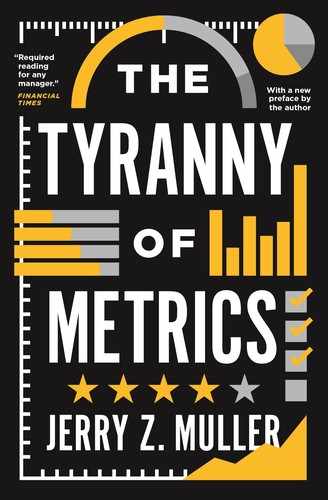Book Description
How the obsession with quantifying human performance threatens business, medicine, education, government—and the quality of our lives
Today, organizations of all kinds are ruled by the belief that the path to success is quantifying human performance, publicizing the results, and dividing up the rewards based on the numbers. But in our zeal to instill the evaluation process with scientific rigor, we've gone from measuring performance to fixating on measuring itself—and this tyranny of metrics now threatens the quality of our organizations and lives. In this brief, accessible, and powerful book, Jerry Muller uncovers the damage metrics are causing and shows how we can begin to fix the problem. Filled with examples from business, medicine, education, government, and other fields, the book explains why paying for measured performance doesn't work, why surgical scorecards may increase deaths, and much more. But Muller also shows that, when used as a complement to judgment based on personal experience, metrics can be beneficial, and he includes an invaluable checklist of when and how to use them. The result is an essential corrective to a harmful trend that increasingly affects us all.
